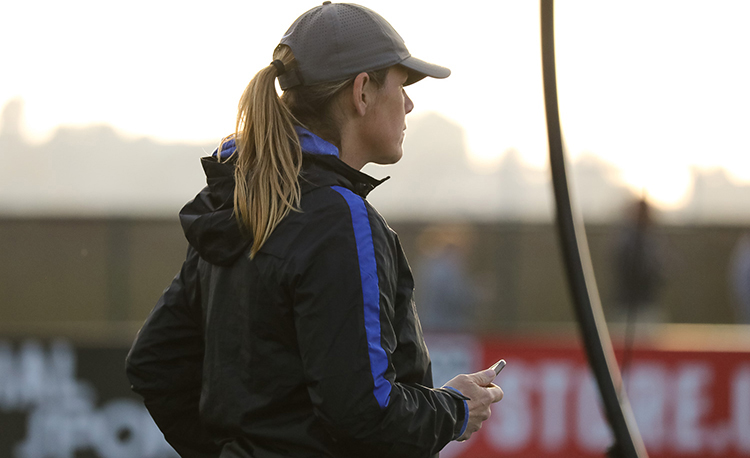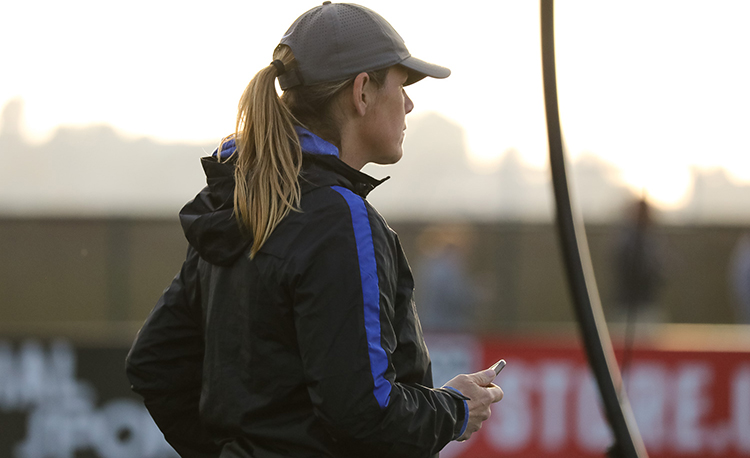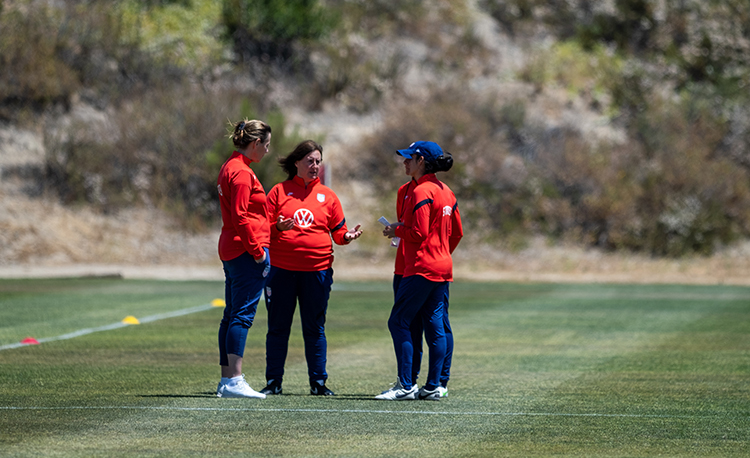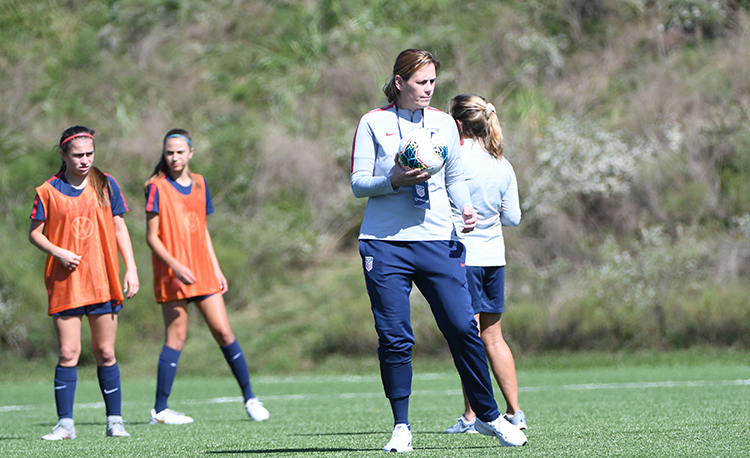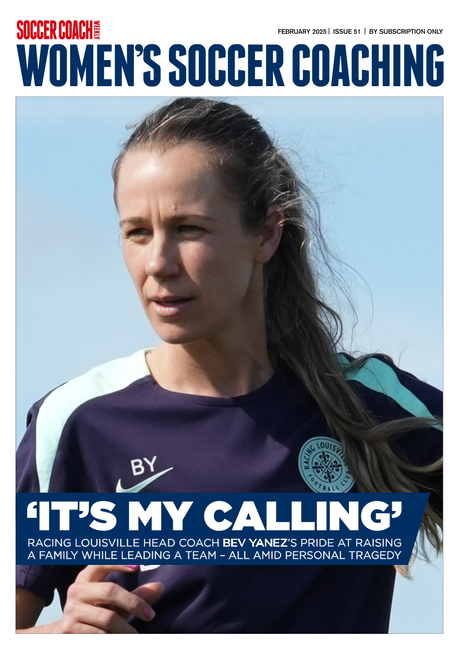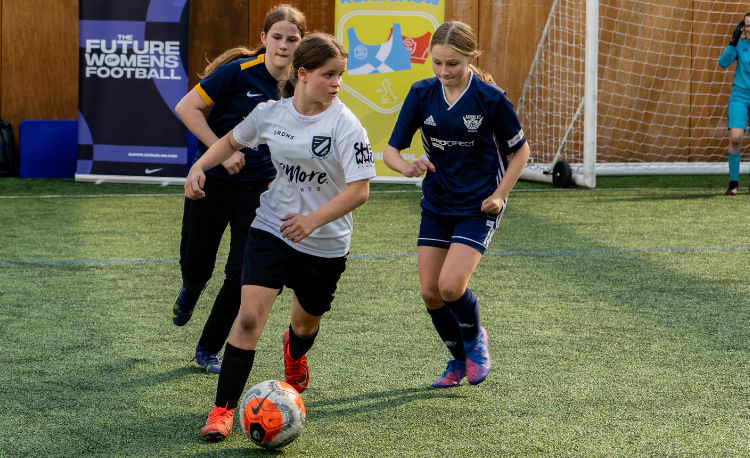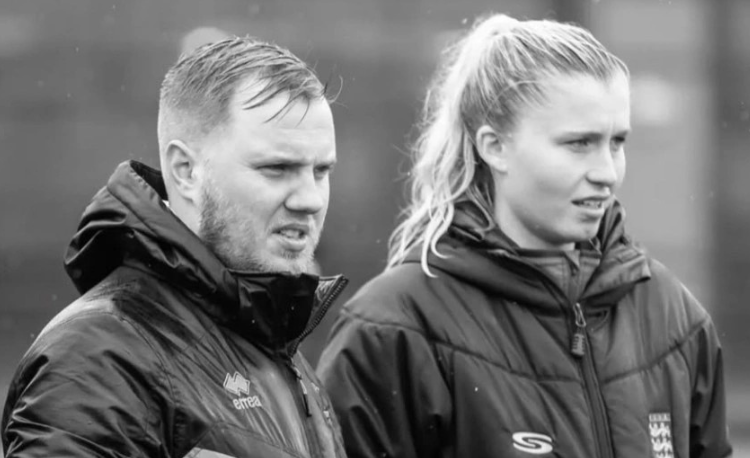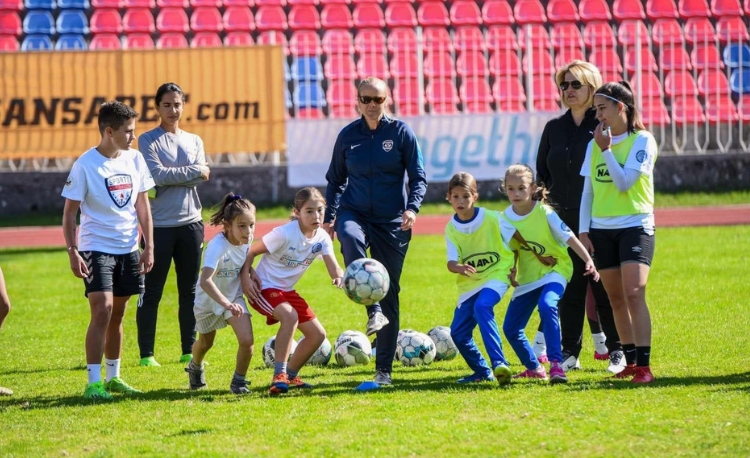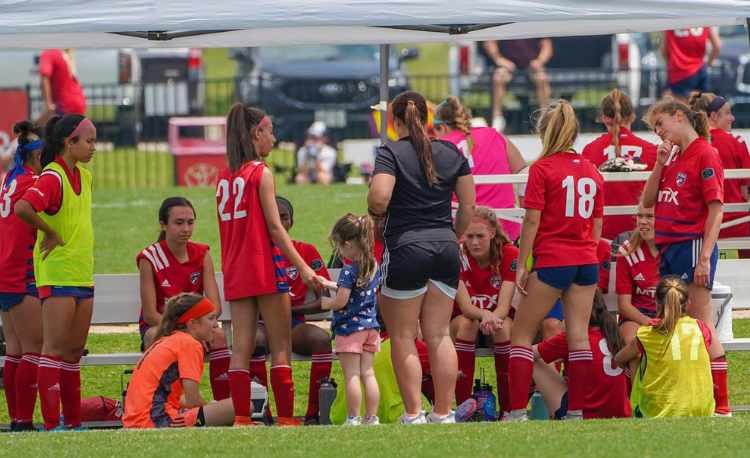You are viewing
1 of your 3 free articles
Explaining the talent identification process in US female soccer
Mirelle van Rijbroek’s explains her US Soccer role, including the qualities she looks for in potential stars and the environment in which to develop them
The USA has long been the most successful international team in women’s soccer.
From 1991 to 2015, they won a medal at every single Fifa Women’s World Cup and Olympic Games soccer tournament - and their 2019 World Cup triumph was their fourth title, the most of any country. They also boast four Olympic gold medals and nine Concacaf Gold Cup wins.
This unrelenting success has been built by a collection of world-class players over the years. From 1990s heroes like Michelle Akers and Mia Hamm, to modern-day icons Abby Wambach, Carli Lloyd and Alex Morgan, the US Women’s National Team has been home to some legends of the game.
But all legends have to start somewhere. And Mirelle van Rijbroek is the person currently in charge of unearthing the next rough diamonds to be shaped into sparkling gems.
Since 2017, van Rijbroek has been the US Soccer Federation’s (USSF) Director of Talent Identification for the girls’ pathway, a job she says is more a “way of life”.
Born in the Netherlands, van Rijbroek moved to Australia at the age of 22 to pursue her dream of playing soccer at the highest level. While playing, and working, she completed her Uefa C, B and A licences.
She went on to be a talent coach for the KNVB [Royal Dutch Football Association] and got her first full-time role in soccer as a coach and technical manager at Willem II, a then newly-formed, but now disbanded, women’s team competing in the Eredivisie.
“I don’t think there is one definition for talent - it’s very context-specific...”
Van Rijbroek was later head of talent ID, talent development and elite performance for the Dutch youth national teams, a role she says allowed her to provide opportunities to female players with a dream.
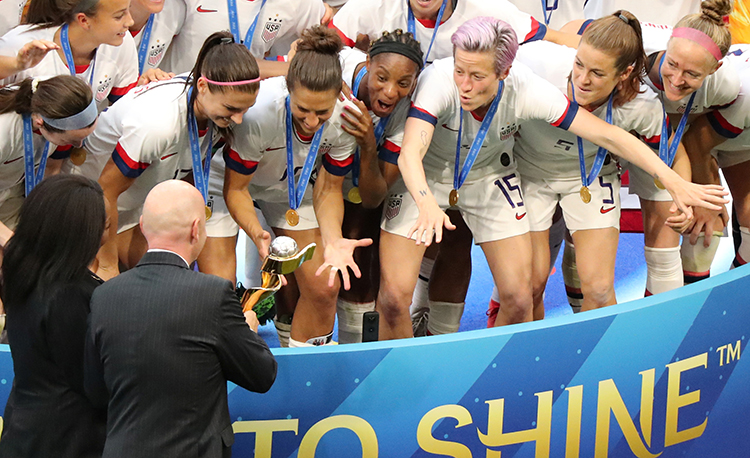
Her current role with the USSF has three strands: youth national-team development, talent identification education and supporting members and clubs in their talent ID initiatives.
She offers some definitions of the terms that are core to her work.
“I don’t think there is one definition for talent, it’s very context-specific,” she says. “You can be talented, you can develop talent, or develop in a certain area where you become talented, so there could be a pre-disposition.
“Talent ID is the monitoring of the development of players, long-term, to see if they have a certain potential.
“And player development is players getting the opportunity, in really good environments, to develop their skillsets, no matter the level.
“Learning is a big part in that one, but also ultimately gaining some sort of autonomy so they have the ability to take ownership of their own journey.”
That journey is long. Van Rijbroek and her team monitor players from U14s through to U23s, seeing them multiple times a year, and requesting a minimum of five reports per season from players’ clubs. Players already in the youth national team system will have even more in-depth reports.
Different players are brought together in ID centers, where they get a chance not only to play each other, but to be compared and benchmarked.
This long-term monitoring approach is what van Rijbroek sees as the best way to counteract the fact that “we’re all subjective human beings who have our own subjective reality”, and the idea that the definition of talent can be “very generic”.
The approach is structured around six key qualities, developed by talent ID managers and youth national-team coaches based on analysis of world-class players and their behaviors, research conducted and how the game looks set to evolve in the future.
Those key qualities are:
• Game understanding and decision-making: The ability to read situations, anticipate and make quick decisions under pressure.
• Responsibility and initiative: Taking responsibility for, and self-regulating, your own learning, development and performance, a lot of which is done off the field.
• Growth mindset and winning mentality: The continuous drive to improve and compete, both on and off the field. Includes focus, intensity, motivation, determination and emotional stability and control.
• Technical execution: Ball mastery and skills under pressure.
• Physical execution: Movement skills and fitness, including whether movement is efficient, agile, coordinated and balanced, and the potential for power and strength.
• Learning ability: The capacity to adapt to a higher level.
In addition to these qualities, the team are also looking for what van Rijbroek terms “the exceptional quality of a player,” whether in those six areas, or in another.
So many elements can influence a player’s development: age, stage of development, learning ability, self-regulated skillsets, genetic markers - and also the coaching environment.
‘IF YOU’RE NOT IN A CLUB, GET INTO ONE’ – Mirelle PROVIDES tips for coaches who want to learn more about talent ID“Get experience in those areas. If you’re not in a club, get into a club. Consider some sort of education - it could be courses, webinars. Talk with different people.
|
So what makes an environment where talent and learning can flourish?
“I think there are different success factors,” says van Rijbroek. “When you look at a challenging performance environment, there are different components.
“One component is the player, but it’s also the players around that player. It’s basically the best players with the best players, those from a more like-minded mindset. Do those players challenge each other to become better? That’s one important factor.
“Then it’s the quality of the coaches. Licenses can say something - they don’t always say everything, but when somebody has got their licenses, they’ve at least gone through development and learning.
“Hopefully, they’re also in that growth mindset, and have the ability to give ownership back to players. I think that’s an important one, that players have the ability to take ownership.
“The third component is your program: the training, the games you play, competition. What does your week look like?
“Then it’s the culture. What kind of culture is being created within that environment? Is it really focused on the player? Do they have the ability to take ownership in certain phases?
Related Files
“It’s how they organize their life and training situation. We’re talking about load, rest and recovery. It’s about sleep, it’s about nutrition, it’s about mental wellbeing.
“The final component is the performance environment and how that is created.
“That’s how you can define if it’s a good environment for players. As a coach, one behavior you can show is to stimulate and inspire players. It’s about giving them autonomy and ownership of their own thinking.”
Coaches playing their part in providing a well-rounded experience for players is something van Rijbroek feels is vitally important, and something she has held as a core part of her philosophy and vision since her work with the KNVB.
“We are developing human beings,” she says. “Yes, soccer is our core, but we also have to make sure that, ultimately, they become good human beings and can use the skills that they’ve learned in other areas. For every coach, that’s a responsibility.
“You spend so much time with those players, I think it’s really important to make sure you are doing a good job in that area, and the players at least have a positive experience.
“Of course, they might feel they make mistakes - things can happen - but ultimately, they’re able to deal with that.”
Developing human beings also prepares them for the potential reality that they might not make it to the top of the game they dedicate so much of their life to. So, for van Rijbroek, preparing players for a life beyond soccer is crucial.
“Your identity is not only being a soccer player. You are so much more than a soccer player,” she explains.
“Having a really good understanding of that is really important, so that your identity is not only connected to being that soccer player, but that you’re a full human being with a lot of other strengths.
"You spend so much time with players, it’s important they have a positive experience..."
“It’s trying to make them aware that, yes, they pursue this dream, but only few will ever actually achieve it and there are so many factors that impact that.
“But also, on this journey they’re going through, everything they learn, the tools they get, they can use those things in other areas.
“It’s creating that awareness, but also giving them tools: how they can do goal setting, giving ownership to them and developing their self-regulated skills is really important.
“It’s other things, too, such as dealing with the pressure of playing international games. Even playing in an ID center with other good players - how do you deal with that pressure?
“If you’re in the youth national team, and in those youth national team World Cups, the experience they gain in those environments is so important.”
Van Rijbroek grew up playing any sport she could, though soccer was the one she loved the most.
When she was a young girl, it wasn’t viable for her to make a career out of the game in the Netherlands. She gained experiences in different places and specialisms, even studying International business and psychology and working in film and banking.
Ultimately, though, she ended up where she belonged – working full-time in soccer, giving players the opportunities she wishes she could have had as a kid, while also sharing with them the life lessons she has learned along the way.
You can’t help but feel that - like the past and present that go before it - the future of the US women’s national team is in good hands.
And those that don’t make the team? They’ll be more than alright too.
‘We need to give females more experience at a higher level’“More females have come into the game and that’s really important, but one of the things I feel still needs to change, and that we need to be better at, is giving females more experience at a higher level.
|
Newsletter Sign Up
Newsletter Sign Up
Discover the simple way to become a more effective, more successful soccer coach
In a recent survey 89% of subscribers said Women's Soccer Coaching makes them more confident, 91% said Women's Soccer Coaching makes them a more effective coach and 93% said Women's Soccer Coaching makes them more inspired.
*includes 3 coaching manuals
Get Inspired
All the latest techniques and approaches
Women's Soccer Coaching offers proven and easy to use soccer drills, coaching sessions, practice plans, small-sided games, warm-ups, training tips and advice.
We've been at the cutting edge of soccer coaching since we launched Soccer Coach Weekly in 2007, creating resources for the grassroots youth coach, following best practice from around the world and insights from the professional game.
